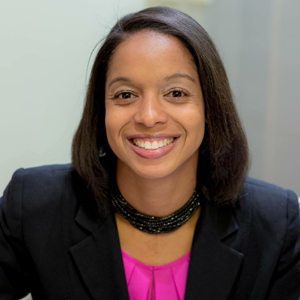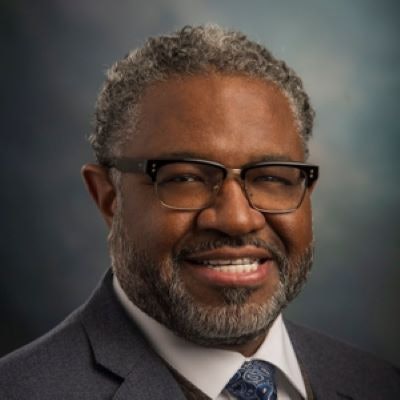Imposter syndrome.
Unwelcoming environments.
Feelings of not belonging.
 Dr. Rihana S. Mason
Dr. Rihana S. MasonThese are the realities so many underrepresented students face while navigating the academic pipeline. Thus, diversifying the professoriate involves providing financial support, mentorship and creating spaces for honest conversations.
“Having those open dialogues to be able to express with others who look like me, who have gone before me and who successfully navigated [the pipeline] was greatly beneficial,” said Dr. Rihana S. Mason, a research scientist at the Urban Child Study Center at Georgia State University.
Initiatives offering these types of support were identified in the book titled, Academic Pipeline Programs: Diversifying Pathways from the Bachelors to the Professoriate.
To discuss best practices of the selected pipeline programs, authors Dr. Curtis D. Byrd and Mason collaborated with SAGE Publishing to commence a three-part webinar series last month.
The first event featured representatives from the precollegiate programs of Knowledge Is Power Program (KIPP) and the College Advising Corps. Thursday’s session, “Transitioning from Bachelors to the Professoriate: College and Graduate Pipeline Programs,” highlighted two graduate programs: Leadership Alliance and Southern Regional Educational Board (SREB)-Doctoral Scholars Program.
“We are really looking at how we target better outcomes for undergraduate and graduate students as our landscape and our demographic change in colleges and universities,” said Byrd, a special advisor to the provost at GSU.
The Leadership Alliance was first founded by Brown University in 1992, with the mindset that it is “imperative for young people to have role models,” said Dr. Taiese Bingham-Hickman, the program’s associate director.
Several workshops were instituted to expose undergraduate students to research careers. As part of the First Year Research program, for example, first-year students from minority-serving institutions conduct research over the course of the summer. Their research is then presented at the Leadership Alliance National Symposium. According to Bingham-Hickman, 84% of participants continue to engage in research experiences after the program. Doctoral students, post-doctoral researchers and junior faculty use the opportunity for mentoring and professional development centered around grant writing and research funding.
“We have committed to leveraging our resources and expertise to increase the readiness and competitiveness of scholars from diverse backgrounds as they train for careers in research,” said Bingham-Hickman.
With the onset of COVID-19, the Leadership Alliance also implemented virtual programming.
Last year, 250 students participated in an online summer research experience. Additionally, a professional development series allows students to hear from doctoral scholars about their personal research journeys first-hand.
 Dr. Curtis Byrd
Dr. Curtis ByrdCurrently, students of color make up one-third of the population at U.S. colleges and universities. Yet, only 5% of faculty are Black, 3% are Hispanic and 1% are Native American, according to SREB.
With a goal of increasing those rates, the SREB Doctoral Scholars Program provides financial assistance, research funding and professional development. Since its establishment in 1993, the program has helped over 1,800 scholars.
“It is hard to win the game when you don’t know the rules of the game,” said Dr. Ansley Abraham, director of the SREB-State Doctoral Scholars Program. “It is amazing how many of us go through that educational process, but really don’t know and understand how institutions work.”
To ensure students receive the necessary skillsets to be successful in the academy, the program—alongside other partners such as the Alfred P. Sloan Foundation, National Science Foundation and the National Aeronautics and Space Administration— support the Institute on Teaching and Mentorship.
During the last in-person event in 2019, more than 1,200 underrepresented minority students convened and participated in over 40 sessions, which focused on the transition into the academy.
“I always say that there are enough reasons to lose students out of these programs,” said Abraham. “But it is not acceptable to lose students out of these programs for all the wrong reasons. There are right reasons to lose students, but we can’t afford to get underrepresented minority students to this level to lose them for the wrong reasons.”
The panelists noted that beyond pipeline programs, administrators at college and universities play a critical role in the recruitment and retainment of faculty of color.
Abraham said institutions must first acknowledge the experiences of underrepresented minorities on their campuses.
“These students are, if you will, registering their concerns,” he added. “But too often, it’s falling on deaf ears and universities don’t hear it. Therefore, they don’t react to it. “If you acknowledge it, then at least there is hope.”
The third part of the series is scheduled for September 16—with featured guests including Univ. of Maryland at Baltimore County (UMBC) President Dr. Freeman A. Hrabowski and Dr. Jamal Watson, a veteran journalist and editor and faculty member at Trinity Washington University.
Sarah Wood can be reached at [email protected].















